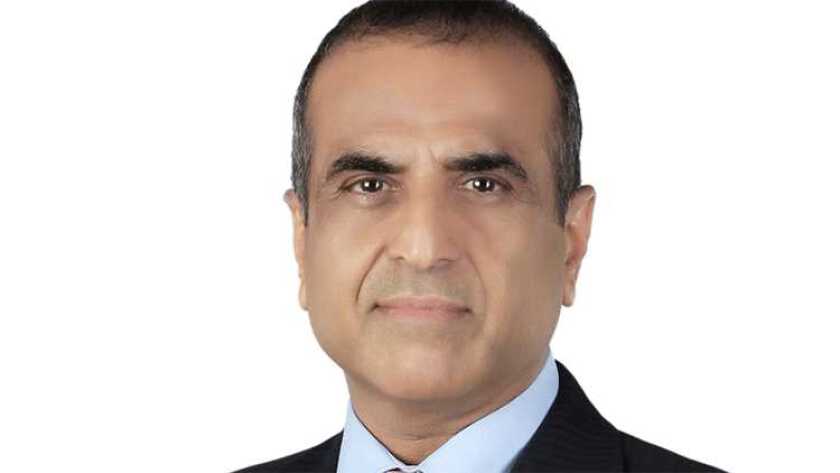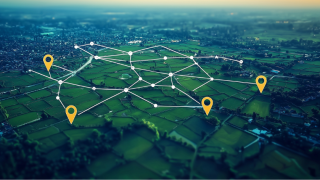Sunil Bharti Mittal, executive chairman of OneWeb, says the satellite company will be completely wholesale, reaching its market only through existing local partners. It will not have its own retail arm.
Which partners? “We’re talking to everyone,” Mittal tells me from Delhi. “It could be a local telco or a local systems integrator.”
The company, rescued from oblivion last year by an injection of US$500 million from his own Bharti Group and the same amount from the UK government, has seen Hughes Network Systems (with $50 million) and SoftBank ($350 million) join its investors.
OneWeb will launch in October 2021 with complete 24-hour coverage of everywhere between 50°N latitude and the North Pole, he confirms. That will blanket virtually all the British mainland: even the southernmost tip, the Lizard peninsula, is virtually on the fiftieth parallel.
At the same time, OneWeb will cover the Nordic countries as well as Poland, most of Russia and the colder bits of Canada plus the Arctic. They’ll all be served “on a 24-by-seven basis”, Mittal says.
In October, the rest of the world — including all of India and Africa, where Mittal’s Bharti Group runs mobile services— will have only interrupted coverage, perhaps an hour or so at a time.
But once all 648 OneWeb satellites are in service, by May or June 2022, coverage will be global. That’s the completion of what he calls “generation one” of the company’s fleet of satellites.
“Gen two will be going into planning at some time next year,” he says, adding full positioning, navigation and timing (PNT). Why is that important? Because when the UK left the European Union on 31 January 2020, the country lost access to the Galileo navigation project, a European rival to the US Global Positioning System (GPS) or Russia’s Global Navigation Satellite System (Glonass).
In a time of political tension, those owners can reduce the accuracy of, or turn off entirely, the services they control, affecting everything from UK Ubers, ambulances and police cars to aircraft approaching Heathrow or oil tankers navigating the English Channel. Galileo was the pan-European answer, until the UK voted in 2016 to leave the EU, cutting off secure access.
Meanwhile, in March 2020, OneWeb went into chapter 11 bankruptcy protection, leaving its founder shareholders — such as Airbus, Coca-Cola, Hughes Network Systems, Intelsat, SoftBank and Virgin, as well as Bharti — losing their investment. OneWeb had set up a satellite factory in Florida in association with Airbus, and had launched its first 74 satellites. But the backers decided the pandemic was just too much.
“Our current situation is a consequence of the economic impact of the Covid-19 crisis,” said then CEO Adrian Steckel.
Industry insiders say that Amazon and SpaceX, both of which have rival satellite projects, decided against bidding for the wreckage.
There was, apparently, a potential bid from Eutelsat that was seeking support from outside France, but it came to naught. Earlier, a 2017 scheme to merge OneWeb with Intelsat had disintegrated into acrimony.
More worryingly, there were potentially viable bids being put together from groups in China and Russia: I have been told reliably that they were of deep concern in Washington, which was desperate to keep OneWeb in friendly hands.
International rescue
And then, from over the horizon in late June, came a UK government proposal to buy OneWeb as part of a coordinated plan to rescue the company from bankruptcy, with then unnamed commercial partners.
The initial reports came via politicians briefing political journalists, two groups that know as little about satellites and telecommunications as I know about growing roses.
They almost all carried a complete misconception: that OneWeb would provide a UK-owned alternative to Galileo, GPS and Glonass. Of course, it wouldn’t; but that mistake nearly scuppered the deal. It brought criticism from not only backbench politicians, whose job it is to question government spending, but also the top civil servant at the relevant government department.
Perhaps as a result, Alok Sharma, the UK’s Secretary of State for Business, Energy and Industrial Strategy, ducked further criticism by issuing a ministerial direction to make the payment go through in late July, on the last day before the UK Parliament rose for its summer break, leaving no time for members of parliament to ask awkward questions.
But now Mittal tells me that OneWeb will have positioning facilities within a few years. “In 2024-25 we should be looking at getting PNT on the gen-two satellites.” It couldn’t be fitted to gen one because “that would have taken longer and cost more money”, he says.
“First, you must understand there are interest groups on all sides, and they have their own agenda.” Generation one, as designed, could not do PNT. “We didn’t want to delay this project,” he says. “Let’s be up there — SpaceX is coming. Let’s be out there, start to sell.”
He has learned from his background in mobile telecoms. “I come from a world where I put up 2G, then 3G. I put up 4G, and now we’re working on 5G. It’s good to get out in the market, get customers, get going. And then keep on bringing your next G all the time.”
Return to the fold
How and why did Mittal come back into OneWeb? “I was one of the original founder shareholders, invited by Paul Jacobs of Qualcomm at one of the Mobile World Congress events, six, seven years back,” he says. “I took a stake in the company, joined the board, and was on the board for two or three years.”
He was, he recalls, the only board member from the telecoms industry, while others were “interested in rocket launches… making satellites [and] terminals”, he smiles. “I was the only pure investor who had nothing but the India and Africa market in mind. The vision was good but somehow the shareholder interests were not aligned.”
He sold his initial interest to the founder of SoftBank, “to Mas [Masayoshi] Son, an old friend of mine”. Then the pandemic came. “After an investment of $3.4 billion, this company went into chapter 11.” Apart from the factory, “all the launches had been contracted”.
And then, last year, he returned. “I was in London [and] I got invited to have a discussion with the British government. I said I know every telecom operator in the world. I know the industry well. [I have] very tight management control in terms of financing and cost control. The decision was taken very quickly.”
He and the UK government “both persuaded each other”, he says. “They were wanting to save this company, and especially not wanting to let in the Russians and Chinese. The US and UK governments are aligned on this to ensure it remains as a British company.”
Indeed, it came as a surprise to many that OneWeb — with global backers and a US factory — was already a British company. It is based in an office about 400m north of the former BBC Television Centre in west London.
Its future secured, OneWeb resumed launches in December 2020 and the next is due in late February, taking it to the point at which it can run commercial services. He shrugs at the challenge of raising the money that’s still needed. “In the last 20 months I have raised $12 billion. I don’t see that for this project I will fail to raise the money that is required,” he says.
Low in the sky
OneWeb is a low Earth orbit (LEO) company, with its satellites orbiting at 1,200km above the Earth. That’s a tiny fraction of the height of geosynchronous satellites — those used by DirecTV or Sky, for example — which are 35,786km above the equator. They appear fixed, but the disadvantage is that the 71,000km round-trip brings delays thanks to the speed of light.
Orbiting so low, OneWeb’s satellites will have a low latency, says Mittal. And the first generation of satellites will have a total capacity of 4Tbps, he adds.
The company will be able to help operators meet their rural coverage obligations, Mittal says, noting that he is already talking to BT and Vodafone in the UK. Both BT and Vodafone initially expressed surprise when I checked with them.
“Three or four” companies are developing receivers, said Mittal. “Let’s say before Christmas this year the UK will have them in their homes.” He wouldn’t give prices for terminals or services, but confirmed that they will vary around the world so that they’re competitive.
So, by the middle of 2022, OneWeb will have a global operation, he promises. The attraction in Africa as well as India is cellular backhaul. “I pay over $50 million a year [for backhauling Airtel Africa’s masts] and don’t get the quality of service that I need.






